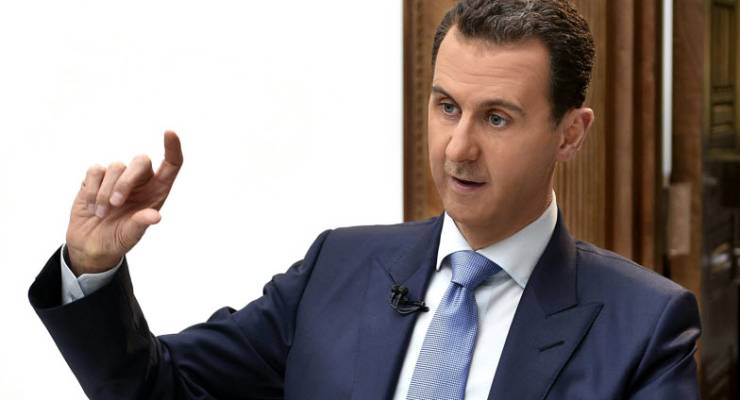
The recent US/UK/France air-strikes on Syria have been met with underwhelming, tepid support, even among the neocon chorus who remain embedded in the mainstream media. The orgasmic outpouring of support that greeted Trump’s August 2017 missile strike was cheerleading the end of the Obama period — and the end of any illusion that Trump was a genuine non-interventionist.
The current strikes have occurred because the earlier missile strikes failed in their ostensible purpose: to bring Assad to heel. A repetition effect has set in. The strikes have simply affirmed US powerlessness to enforce the old-skool Pax Americana; total power through conventional means, in the eyes of the world. But beneath that, business continues. If one believes that the sole purpose of the recent strikes was in response to the chemical “event” in Douma — attack by Assad, a false-flag attack by Jaysh al-Islam, or chemical plant accident — then it looks purposeless. But that is only the topmost layer of the event.
Take the cooperation of the US, UK and France, which has been much ballyhooed by the last neocons — the ever-reliably wrong Greg Sheridan chief among them — as some sort of new era of cooperation, now that France, de Gaulle’s last mistress, etc, etc, has rejoined the Atlantic alliance. Well, it’s true that they have worked with common purpose, but only because all three leaders are in the same plight: bedevilled by terrible domestic politics, and seeking to export internal conflict.
None of these three leaders has a united party behind them. Trump and Macron are both products of the instant politics of the new era; Theresa May is an accident, leading a split party, steering a policy course she campaigned against. Trump’s personal lawyer is probably making a plea deal as we speak, after raids on his office, and coughing up stuff that might give Republicans little option but impeachment.
Trump aside, I do not believe that either May or Macron would order a strike if they believed that Douma was a false-flag operation. Trump had to do something, in image terms, and this is about the least he could do. For all its fire and fury, it is nothing like a categorical strike against the Assad regime. But is there any likelihood that the Atlantic alliance really wants Assad removed? It seems unlikely. What would replace him? Whatever possibility there was of putting together a rebel coalition — supposing that was ever the intention behind financial backing for the rebels — has long disappeared. Whatever arose out of Assad’s toppling, would start with al-Qaeda derivatives at the moderate end, and move in a more fundamentalist and violent direction.
The power such groups would have a relationship with would not be the US, but, increasingly, Turkey, whose relationship with Sunni jihadis has grown stronger by the year — resulting, most recently in the attacks on the Syrian-Kurdish Afrin commune, using jihadi proxies. From the other side, Iran would be pushing through to establish its power, now that Iraq is a Shia republic. Syria, this product of World War I and the early Cold War, a confected nation surrounded by states founded on ancient civilisations, would disappear.
So too would an opportunity for US influence. What the US wants above all is an independent Kurdistan in the north of Iraq — Israel Two, as Turks call the prospect of it — and the Syrian areas federated as cantons. For that, it would appear to need Russia in the game, as a Christian European power, to ensure that the two non-client Islamic states in the region — Turkey and Iran — do not simply occupy the whole area, and change US access to the heart of the “world island”. It needs Russia to be contained in its actions — leave Woolies alone, Vladimir! — but it needs it nonetheless.
We are now aligning on civilisational lines, as the Cold War recedes in the distance. You could say this is the last battle of World War I. You could say it’s the first battle of such, but that would be too irritatingly cute by half. As were the missile strikes. Boutique little blasts, not many killed. Sanctions, speeches, op-eds, the slow running-down of superpower projection. And still the war goes on. Quite possibly, because everyone needs it to.








Crikey is committed to hosting lively discussions. Help us keep the conversation useful, interesting and welcoming. We aim to publish comments quickly in the interest of promoting robust conversation, but we’re a small team and we deploy filters to protect against legal risk. Occasionally your comment may be held up while we review, but we’re working as fast as we can to keep the conversation rolling.
The Crikey comment section is members-only content. Please subscribe to leave a comment.
The Crikey comment section is members-only content. Please login to leave a comment.